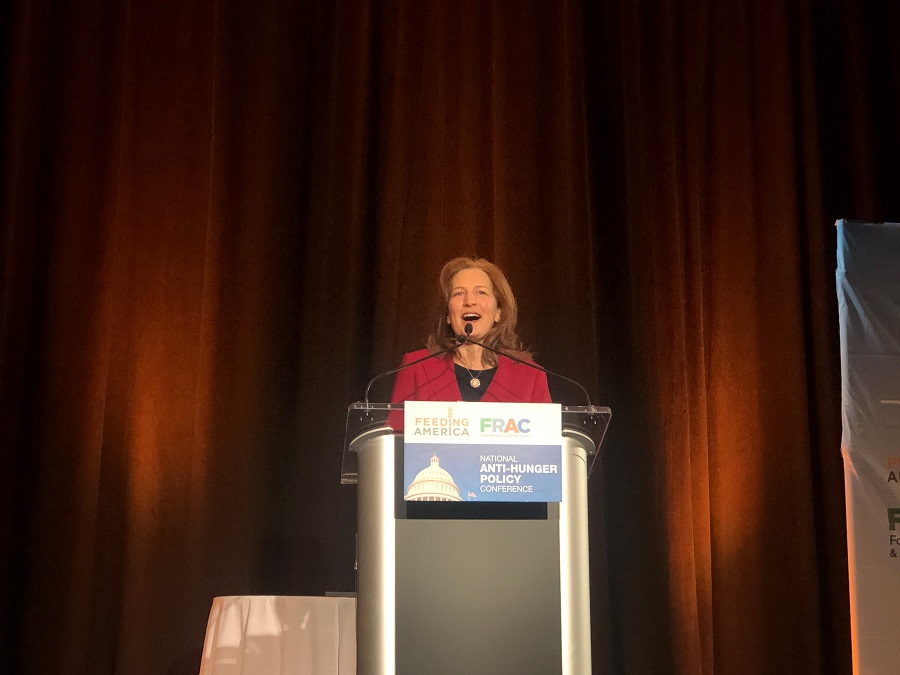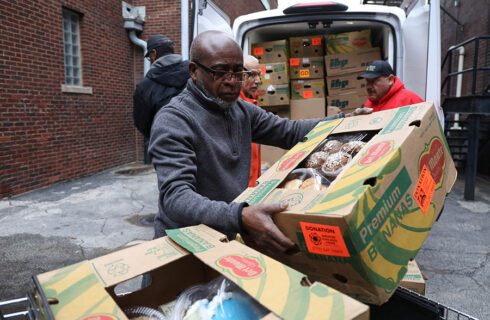People often ask Rep. Kim Schrier if she misses practicing medicine.
She does, but the pediatrician-turned-congresswoman is also aware of the rare opportunity she now has representing her local community in Washington D.C.
Rep. Kim Schrier, D-WA, addresses the crowd at the National Anti-Hunger Policy Conference on March 2, 2020.
“We are fundamentally nickel and diming people who are already struggling over what amounts to $1.40 per meal (that SNAP provides),” Schrier said. “It’s not saving money,” Schrier continued. “It’s pushing the responsibility elsewhere, to our food banks and religious organizations. Organizations that are already overburdened.”Schrier blasted a recent Trump administration proposal that would restrict what is known as broad-based categorical eligibility, which streamlines the process by which families’ eligibility for SNAP is determined. If a family’s eligibility for another means-tested program has already been determined, for example, it might also be deemed eligible for SNAP. Importantly, broad-based categorical eligibility also allows school-age kids to be automatically eligible for free and reduced-priced school meals if their families are enrolled in SNAP. If this restriction is implemented, 1 million children across the U.S. would be at risk of losing their school meals, something Schrier called a “travesty,” particularly for schools – including those in her own district – where a majority of kids qualify for free meals. If this and other federal proposed changes to SNAP are enacted, an estimated 3.7 million people nationwide would be at risk of losing their benefits. The Food Depository and other food banks across the country would not be able to fully meet the demands. For every meal the Food Depository provides in Cook County, SNAP provides the equivalent of seven meals. Nationwide – and in Cook County – one in six children live in food insecure households. Well-nourished kids, Schrier pointed out, are healthier and are more likely to perform better academically and behaviorally. These children then grow up to have better job prospects and health outcomes. “So that means that providing food isn’t just kind,” she said. “It’s really a smart investment.” We cannot end hunger and its root causes without supporters like you. Stay up to date on the latest anti-hunger advocacy opportunities, including proposed changes to SNAP and other federal nutrition programs.
Share This Post



